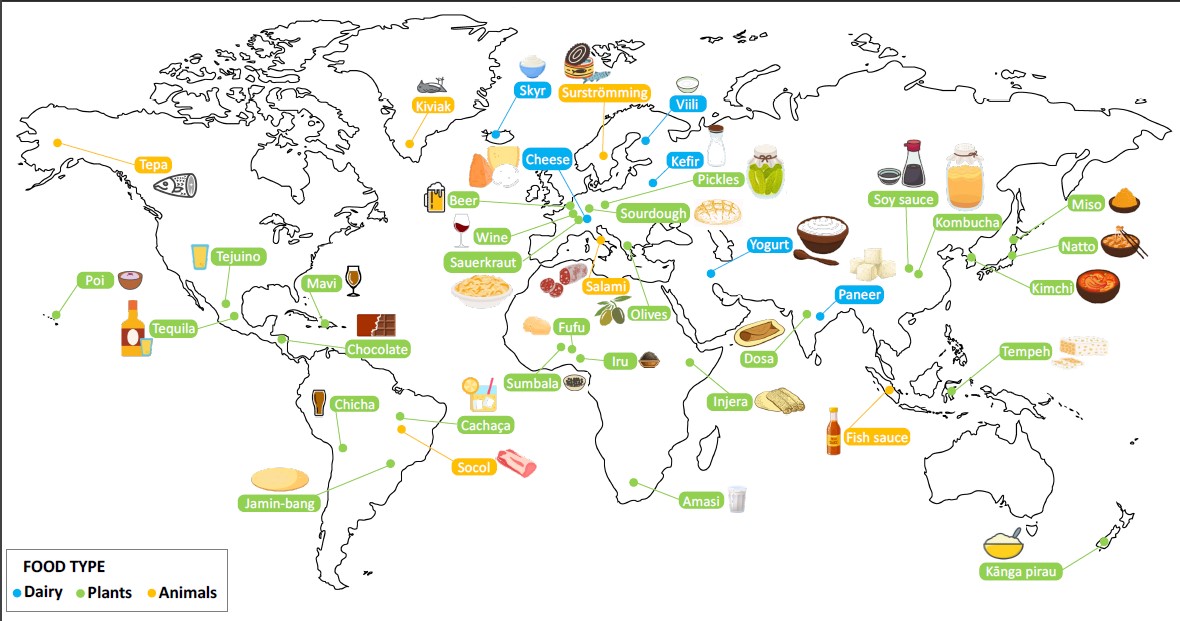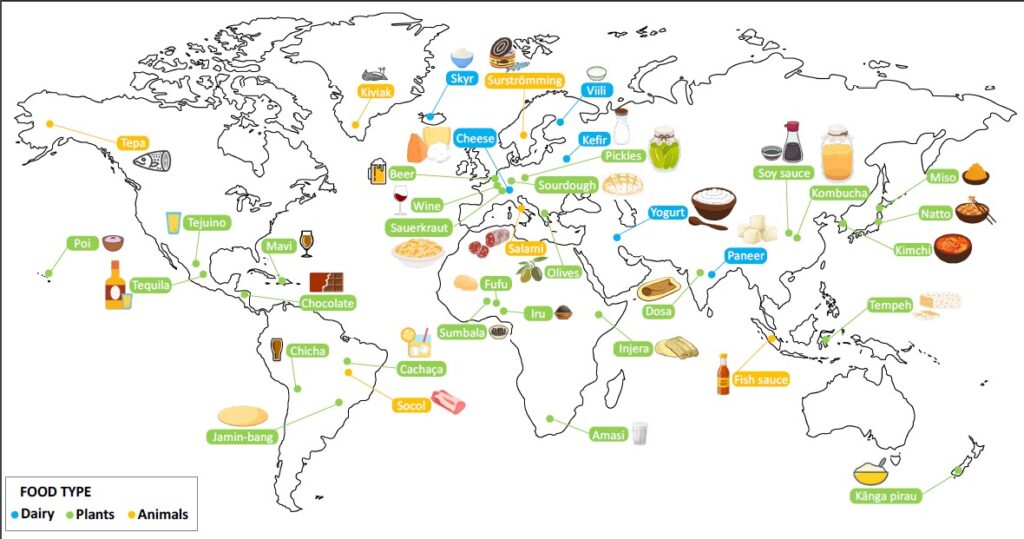Fermentation: How microbes make our food delicious

What do yogurt, wine, olives, chocolate, cheese, beer, sauerkraut, kombucha, and sourdough bread have in common? These are all fermented foods powered by microorganisms. At this stand, you can find out what role microbes play in food production. Those who want to try out the power of microbes for themselves will be given a sourdough starter.

Microbes hold the world together by playing fundamental roles in almost every natural process on Earth. Microbes also play a central role in creating some of our favorite foods and beverages, such as yogurt, chocolate, wine, and cheese. Fermented foods are created through transformation of raw ingredients by various microbes like bacteria and fungi. While fermented foods and beverages have been a part of human diet for thousands of years, only recently scientific advances have led to discovery of the true diversity and ubiquity of microbes involved in food production. No matter who you are or where you live, it is almost certain that you enjoy some fermented foods, as they make up about one third of foods consumed globally. Thus, microbes quite literally make the world a delicious place!
The Food Systems Biotechnology group at ETH Zurich studies microbial ecosystems associated with foods and human health. This includes analysis of microbial communities in various fermented foods collected around the world, to identify microbial properties that make each food product unique. We invite Scientifica 2023 visitors to our exhibition booth to (i) learn more about the power of microbes in food production, (ii) find out what microbes make fermented foods so delicious and unique, and (iii) participate in a citizen science research project by taking sourdough starters to your home!

